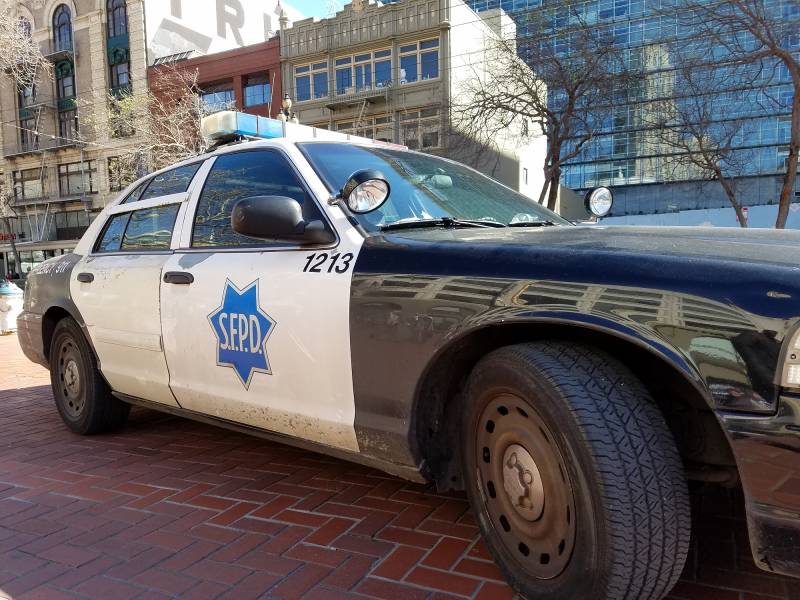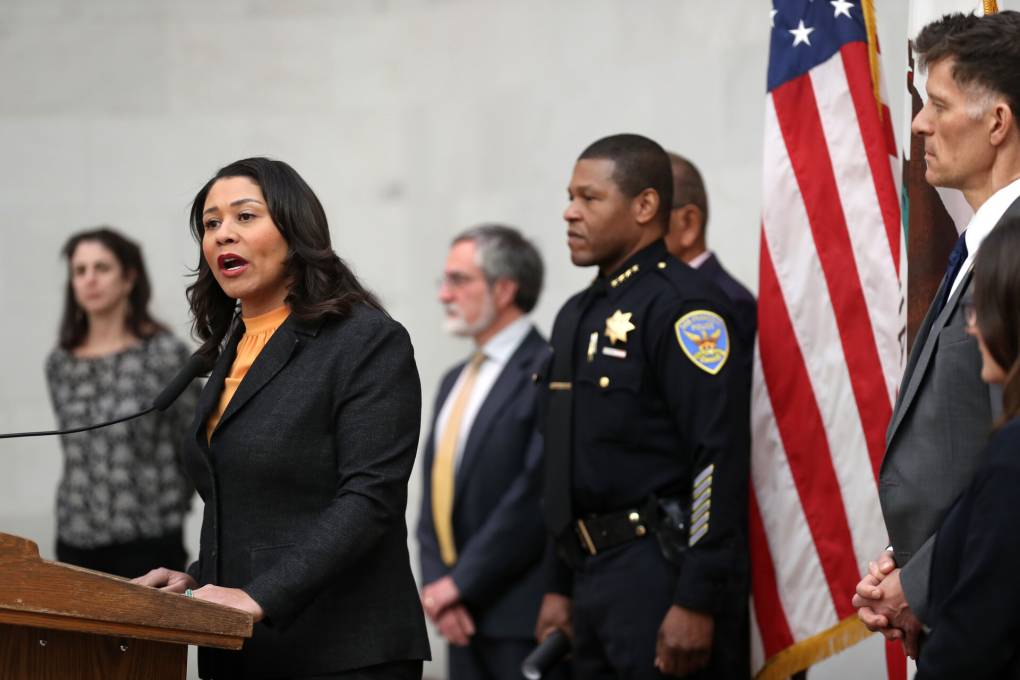Updated 10 a.m. Thursday
A new San Francisco Police Department policy limiting stops for certain traffic violations took effect Wednesday, aiming to reduce disproportionate over-policing of Black and Latino people.
But while the policy marks a win for the citizen-led Police Commission, it’s also one of the last the panel approved independently before voters passed a measure placed on the March ballot by Mayor London Breed that markedly reduced its power.
The policy restricts “pretextual stops,” or traffic stops for low-level violations that officers use to investigate whether the person was involved in an unrelated crime, often based on little more than speculation.
Data shows that the stops, which generally do not result in a traffic citation, can lead to violence and even death, according to Eleana Binder, a policy manager at Glide’s Center for Social Justice.


